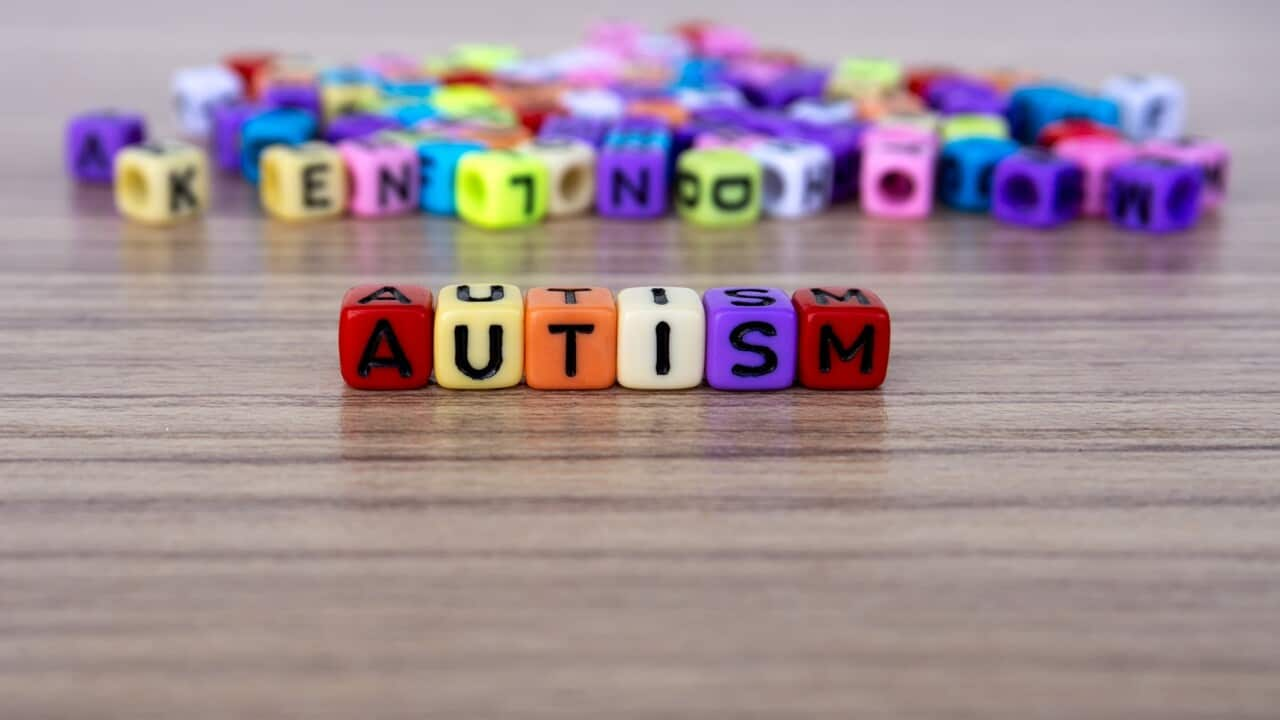TRANSCRIPT
Melissa Gijsbers (giz-bers) could always tell she was different to other people.
"I always thought that there was something wrong with me that I was broken. And especially as I got older, I thought I was a failure and a loser because I didn't finish uni and my marriage fails and I had all these struggles, and everyone else seemed to be doing life easily. And I struggled to make friendships and basically, my life didn't look like what I was told that it should look like."
At 44 years of age, Melissa figured out why things seemed to be easier for everyone else - she was diagnosed with autism.
Officially, there are 200,000 autistic people in Australia - but experts think there could be three times as many.
Ms Gijsbers says people don't understand what an Autistic person looks like.
"Well, there's these big stereotypes. Often they're boys and young boys. They often see things like say Rain Man, or the Good Doctor or those sorts of characters as being typically autistic."
It's those kinds of misconceptions that the draft National Autism Strategy is trying to address.
Released for consultation today [[tue 2 apr]], the federal government is looking for feedback before releasing the final report before the end of the year.
Co-chair of the Oversight Council for the National Autism Strategy, Clare Gibellini ((jib-el-ee-nee)), says the strategy will address issues for autistic people of all ages.
"It's a whole of life thing, and that's what we're kind of trying to hope to address through this strategy is supports and better outcomes across, not just for younger people, but right across the lives of Autistic folk."
It's the first time Australia has looked at a national approach to autism.
The strategy identifies areas for improvement, and commitments to improving autistic people's lives.
Ms Gibellini says it's starting point to addressing the issues autistic people face.
"It's federal. It's a very overarching strategy. So, you know, at the moment where it's sitting at a very high level with the commitments that were released today, and now we're working on the detail about what actual actions will take behind that."
One key area for improvement is economic inclusion.
Currently, one third of autistic people in Australia are unemployed, with many more underemployed in jobs that don't align with their skills or qualifications.
Ms Gibellini says there are easy improvements that could be made to make employment more accessible.
"It's not just about a job for a job's sake. It's about a job that meets the needs of the individual. I think COVID actually gave us a really good insight into that. So where roles could be all of a sudden hybrid or customised to better meet the needs of the individual employee. There's really good potential there to make roles, really a good fit for autistic people."
Autistic people's life expectancy is 20 years shorter than the general population, they are nine times more likely to die from suicide, and are 2.5 times more likely to experience depression than the general population.
Despite the poor mental health outcomes, when autistic people look for support, they don't find services that meet their needs.
Ms Gibellini says the mental health system currently isn't equipped to deal with Autistic people.
"No, and that's something that we'd like to address. Department of Health and Aging is also working on the national health and mental health road map for autistic Australians. And that's a focus that they have as well. And it will be really cool if we could, you know, through both the strategy and that road map, make it actually safe for autistic practitioners to be open and out about the fact that they're autistic as well."
When Melissa Gijsbers tried to access support, she was turned away.
"I reached out for support. I reached out for help, and I actually got told by an organisation who was meant to help people that I should feel rewarded, that I have a level of functionality compared with other people. And when I read that I was furious. Because I thought I know I can do stuff. Because if I don't do it, like if I don't cook dinner, I don't eat. Basically, if I don't work, I don't earn money to pay the bills. So I have been able to get to 46 years of age, you know, with a level of functionality. That doesn't mean that I'm not struggling and that I don't need help."
Receiving an autism diagnosis can be expensive, and many autistic people are misdiagnosed.
Ms Gibellini says there's work to be done on the diagnostic system.
"What we want is to make it more accessible to people, you know, look at things like cost, look at things like the availability of providers to do the diagnosis. Look at you know, the tools that are used and those sorts of things, because there's a lot of barriers in there. You know, if we've got such poor employment outcomes, how are we ever gonna afford to go and see the psychologist or the psychiatrist, you know, and then if we see one, do we see one who has an understanding of what it looks like to be autistic and a woman, or autistic and an older woman or an autistic as a non binary person, you know, those sorts of things. So, yeah, a lot of work has to go into that."
The draft strategy is open for feedback until the May 31st, via the Department of Social Services website.













